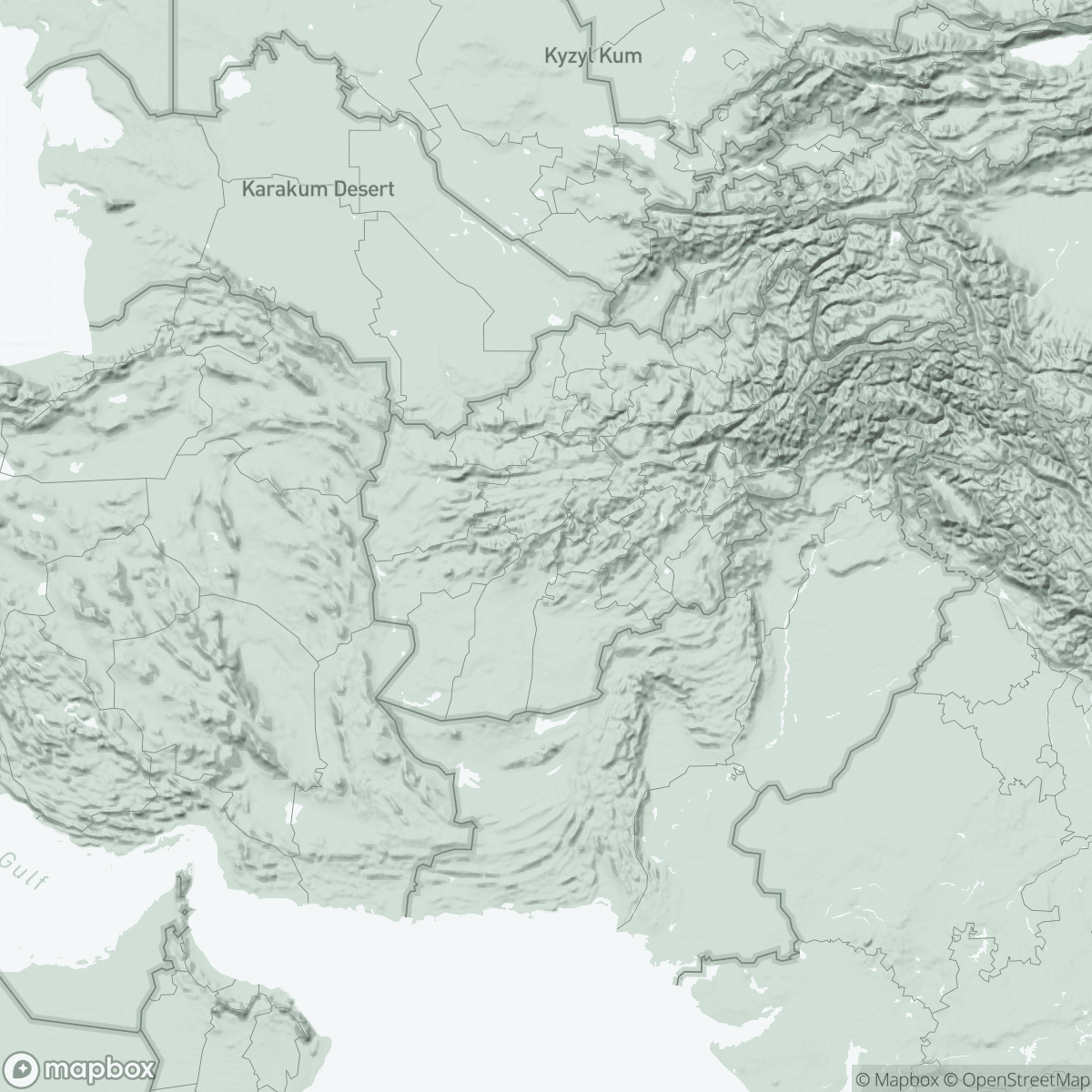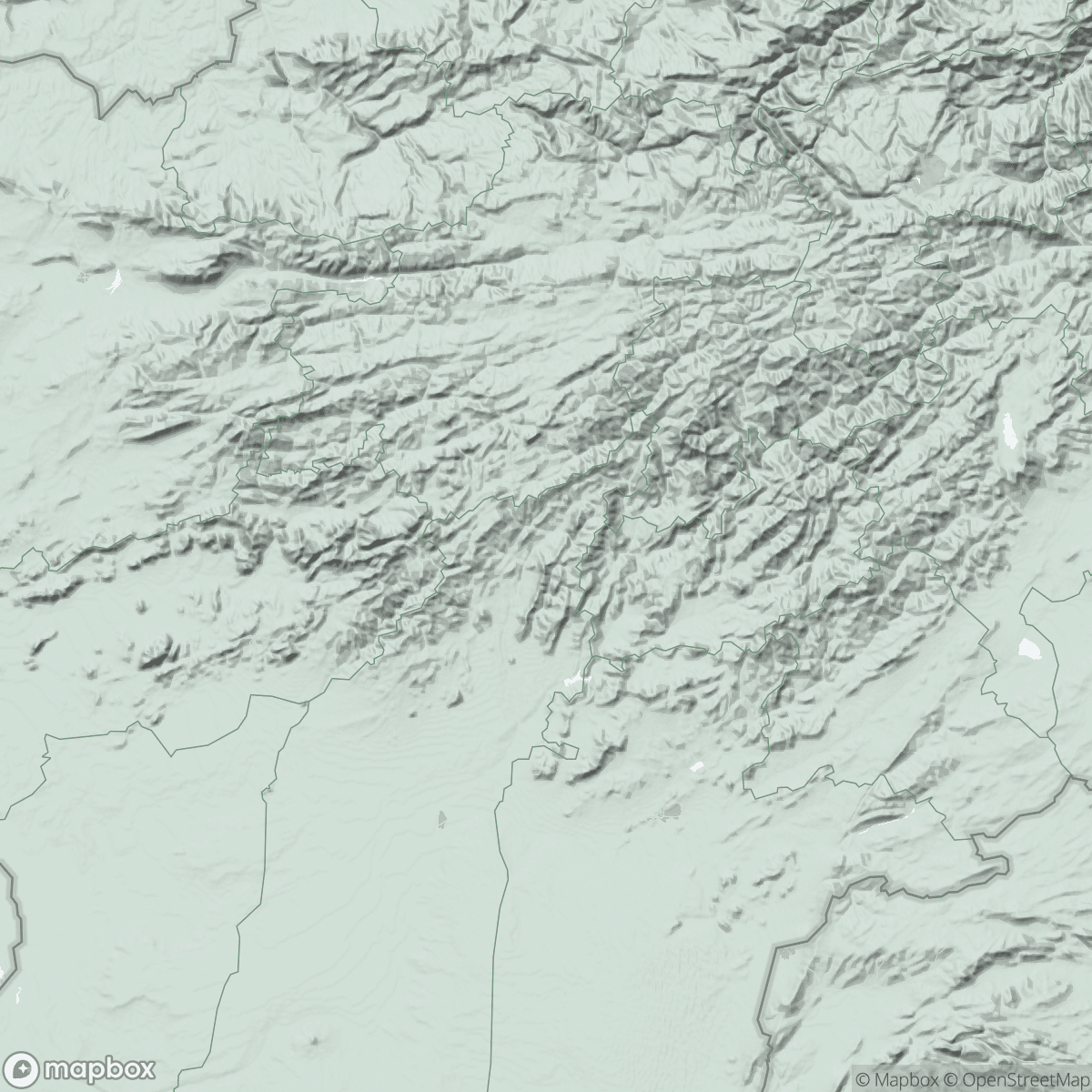
Afghanistan: Measles surge necessitates strengthening of prevention measures
In 1 click, help us spread this information :
Ten-month-old Bilal lies in bed at Mazar-i-Sharif regional hospital, in Afghanistan’s Balkh province, where he is being treated for measles and pneumonia, watched over by his mother Zakia.
When Bilal fell ill with a fever, Zakia took him to one privately-run clinic after another, but his condition got worse. "In the beginning, he had a severe fever, and despite taking him to two private medical facilities, they could not pinpoint what exactly was making him sick,” says Zakia.
At first they suspected he had pneumonia and gave him some medication, but he did not show any improvement."
When she travelled to Mazar-i-Sharif Regional Hospital in the provincial capital, he was diagnosed with measles and admitted first to the measles isolation unit supported by MSF and later to the intensive care unit when his condition deteriorated further. Three days later, he is showing signs of improvement.
Today, he slept well for the first time since falling ill,” says Zakia.

Another mother, 21-year-old Zahra, kept her eyes on her 10-month-old son, Ali Ramin, in the back of an ambulance while journeying from Bala Dara-i-Suf District in Samangan Province to Mazar-i-Sharif Regional Hospital. "He received treatment in the local hospital for several days, but as his condition deteriorated, and we were rushed here," Zahra says. Ali Ramin’s condition is also improving.
Une autre mère, Zahra, 21 ans, n'a pas quitté des yeux son fils de 10 mois, Ali Ramin, à l'arrière d'une ambulance, alors qu'elle se rendait du district de Bala Dara-i-Suf, dans la province de Samangan, à l'hôpital régional de Mazar-i-Sharif. « Il a été soigné à l'hôpital local pendant plusieurs jours, mais son état s'est détérioré et nous avons été transportés d'urgence ici », explique Zahra. L'état d'Ali Ramin s'améliore également.
In the first four months of 2024, MSF saw a surge in measles cases in facilities it runs or supports in three provinces of Afghanistan, affecting many babies and young children.
Cases of measles are reported annually in Afghanistan, but this year’s spike in Balkh, Herat and Helmand provinces was worrying.
Between January and April, MSF teams treated almost 5,000 children for suspected measles: 2,700 at Mazar-i-Sharif Regional Hospital, 836 at Herat Regional Hospital in Herat Province and 1,406 at Boost Provincial Hospital in Helmand Province. Four in five of those admitted in Herat were under the age of one.
In Herat, MSF doubled the number of beds in its isolation unit from 31 to 61, while the measles isolation unit in Mazar-i-Sharif was running at more than 200 per cent capacity between January and March, forcing children to share beds at times.
Bilal and Ali Ramin are some of the lucky ones. Although a common childhood disease, measles can be deadly when complicated by other conditions such as malnutrition or congenital malformations. In MSF’s measles isolation unit in Herat regional hospital, seven to eight of every 100 children admitted with suspected measles in the first three months of this year died.
Babies are particularly vulnerable to the disease, as children in Afghanistan do not receive their first dose of measles vaccine until they are nine months old. Believing he was still too young, Zakia had not yet taken Bilal to be vaccinated when he fell sick.
Since mid-April, the numbers of children admitted with suspected measles to facilities run by or supported by MSF have started falling and the teams are hopeful that this peak is over. But to reduce future peaks and deaths seen among young infants, MSF recommends that the first dose of measles vaccine be given at six months old, and for a sustained effort to vaccinate every child in Afghanistan against the disease.
“Our main priority is to treat sick patients, but this is not enough,” says MSF medical coordinator Dr Piex Uwiragiye.
The best way to combat measles is prevention through vaccination. We are already vaccinating all eligible children who come to us, but more needs to be done to prevent the further spread of the disease.
"We recommend that the reactive vaccination age in Afghanistan be expanded to cover children from the age of six months, who are currently left out, despite being disproportionately affected.”



